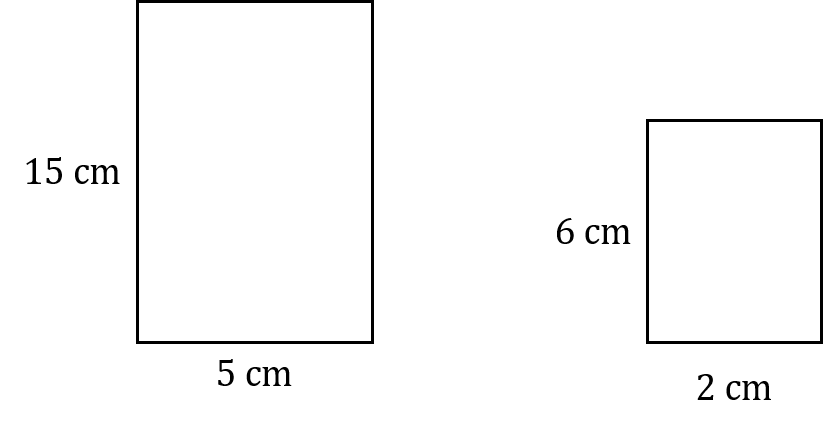Similarity (Cambridge (CIE) IGCSE Maths) : Revision Note
Similarity
What are similar shapes?
Two shapes are similar if they have the same shape and their corresponding sides are in proportion
One shape is an enlargement of the other
How do we prove that two triangles are similar?
To show that two triangles are similar you need to show that their angles are the same
If the angles are the same then corresponding lengths of a triangle will automatically be in proportion
You can use angle properties to identify equal angles
Look out for for isosceles triangles, vertically opposite angles and angles on parallel lines
If a question asks you to prove two triangles are similar
For each pair of corresponding angles
State that they are of equal size
Give a reason for why they are equal
How do we prove that two shapes are similar?
To show that two non-triangular shapes are similar you need to show that their corresponding sides are in proportion
Divide the length of one side by the length of the corresponding side on the other shape to find the scale factor
If the scale factor is the same for all corresponding sides, then the shapes are similar
Examiner Tips and Tricks
A pair of similar triangles can often be opposite each other in an hourglass formation.
Look out for the vertically opposite, equal angles.
It may be helpful to sketch the triangles next to each other and facing in the same direction.
Worked Example
(a) Prove that the two rectangles shown in the diagram below are similar.

Use the corresponding lengths (15 cm and 6 cm) to find the scale factor
Use the corresponding width (5 cm and 2 cm) to find the scale factor for the other pair of sides
The two rectangles are similar, with a scale factor of 2.5
(b) In the diagram below, AB and CD are parallel lines.
Show that triangles ABX and CDX are similar.

State the equal angles by name, along with clear reasons
Don't forget to state that similar triangles need to have equal corresponding angles
Angle AXB = angle CXD (vertically opposite angles are equal)
Angle ABC = angle BCD (alternate angles on parallel lines are equal)
Angle BAD = angle ADC (alternate angles on parallel lines are equal)
All three corresponding angles are equal, so the two triangles are similar

You've read 0 of your 5 free revision notes this week
Sign up now. It’s free!
Did this page help you?

